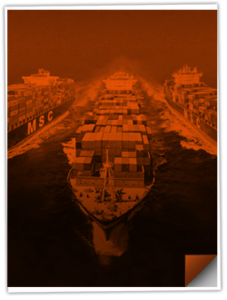Shipments of Scarce or Threatened Health and Medical Resources Being Detained for ExportShipments of Scarce or Threatened Health and Medical Resources Being Detained for Export
- April 19, 2020
The Federal Emergency Management Agency (FEMA) is scheduled to issue a temporary rule in the Federal Register on April 10, 2020 to allocate certain scarce or threatened materials for domestic use, so that these materials may not be exported from the United States without explicit approval by FEMA.
The rule covers five types of personal protective equipment (PPE) to respond to the spread of COVID-19. To ensure that these scarce or threatened PPE materials remain in the US for use in responding to the spread of COVID-19, it is the policy of the US to prevent domestic brokers, distributors, and other intermediaries from diverting such material overseas. These items are outlined below:
(1) N95 Filtering Facepiece Respirators, including devices that are disposable half-face-piece non-powered air-purifying particulate respirators intended for use to cover the nose and mouth of the wearer to help reduce wearer exposure to pathogenic biological airborne particulates;
(2) Other Filtering Facepiece Respirators (e.g., those designated as N99, N100, R95, R99, R100, or P95, P99, P100), including single-use, disposable half-mask respiratory protective devices that cover the user’s airway (nose and mouth) and offer protection from particulate materials at an N95 filtration efficiency level per 42 CFR 84.181;
(3) Elastomeric, air-purifying respirators and appropriate particulate filters/cartridges;
(4) PPE surgical masks, including masks that cover the user’s nose and mouth and provide a physical barrier to fluids and particulate materials; and
(5) PPE gloves or surgical gloves, including those defined at 21 CFR 880.6250 (exam gloves) and 878.4460 (surgical gloves) and such gloves intended for the same purposes.
Under this temporary rule, before any shipments of such covered materials may leave the US, Customs and Border Protection (CBP) will detain the shipment temporarily, during which time FEMA will determine whether to return for domestic use, issue a rated order for, or allow the export of part or all of the shipment proceed for export. FEMA will work to review and make determinations quickly and will endeavor to minimize disruptions to the supply chain. FEMA will make all decisions consistent with promoting the national defense. FEMA may develop additional guidance regarding the exemption of continuous export agreements with customers in other countries prior to January 1, 2020 and encourages manufacturers to contact FEMA with specific information regarding their status under this exemption.
Decision criteria will involve the totality of circumstances and will include:
(1) the need to ensure that scarce or threatened items are appropriately allocated for domestic use;
(2) minimization of disruption to the supply chain, both domestically and abroad;
(3) the circumstances surrounding the distribution of the materials and potential hoarding or price-gouging concerns;
(4) the quantity and quality of the materials;
(5) humanitarian considerations; and
(6) international relations and diplomatic considerations.
Note: At any point in time, and to the extent consistent with US policy, the FEMA Administrator may determine additional materials to be subject to this allocation order.
FEMA will work with CBP and the trade community to implement this rule. The rule is effective immediately upon publication, but CBP is already looking at and reviewing export shipments of PPE. This is a temporary rule that will cease to be in effect on August 8, 2020 (120 days after scheduled April 10 publication date).
In unpublished new FEMA regulations under 44 CFR 328, violations are considered a crime punishable by a fine of not more than $10,000 or imprisonment for not more than one year, or both. There are also provisions for fraud for concealing merchandise intentionally.
FOR FURTHER INFORMATION from FEMA CONTACT: Daniel McMasters, Office of Policy and Program Analysis, 202-709-0661, [email protected].
Shapiro will continue to monitor this situation and provide status updates as they become available.



